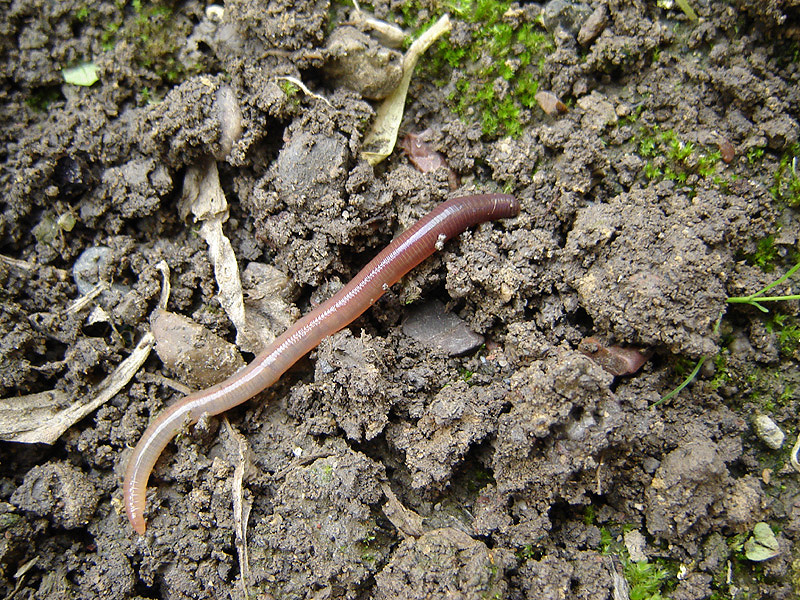by Caroline Hovanec
I started composting a couple of years ago, and as I got into the habit of saving apple cores, potato peelings, and strawberry leaves, and carrying them out to the bin, I began thinking more and more of Darwin. Towards the end of his life, long after the voyage of the Beagle, the scandal of Origin of Species, and his instatement as scientific celebrity, Darwin began keeping earthworms in pots at his house in Downe. He fed them bits of onion and cabbage, shone lights upon them and played music for them, and monitored their activities with the curiosity of a child. He was working on a book about worms, The Formation of Vegetable Mould Through the Action of Worms, which would be published in 1881, a year before his death.

What Darwin knew about worms was the same insight that composters and gardeners know today. Worms and other decomposers turn the earth. They work on dead organic matter, making it into nutrient-rich soil. Darwin found that earthworms were tiny ploughmen, digesting enough dirt to keep the soil healthy for plants, smooth out rough terrain, and bury (and thus preserve) Roman ruins in rural England. Earthworms were a boon, he showed, for archaeologists, for seedling plants, even for aesthetes. “When we behold a wide, turf-covered expanse,” he concluded, “we should remember that its smoothness, on which so much of its beauty depends, is mainly due to all the inequalities having been slowly levelled by worms.”
Darwin suggested that people (specifically archaeologists) “ought to be grateful to worms,” and it’s this idea of gratefulness that led me to write my article “Darwin’s Earthworms in the Anthropocene” for Victorian Review. What I see in Darwin’s worm book, and in the practice of vermicomposters, is an ethics of hospitality across species. Darwin recognized, and composters today also recognize, that worms and other decomposers make the earth a good home for humans. In turn, we are obligated to make the earth a good home for other species. I think the environmental crises of our age can be understood as a failure of hospitality—humans have been poor guests and even worse hosts on this planet. Perhaps learning to be grateful for what the earth gives, and feeding the earth in turn, can help repair some of the damages.
My compost bin doesn’t have any earthworms (yet), but for the ambitious gardeners out there, one can obtain red wigglers, European nightcrawlers, and Alabama jumpers to make fertilizer and aerate the soil. Darwin found them to be marvelous creatures: architects of smooth fields, caretakers of plants, protectors of ruins. When you bite into a juicy tomato or a crisp snap pea, grown in a garden fertilized with vermicompost, you might feel the same way.
To read more, see Caroline Hovanec, “Darwin’s Earthworms in the Anthropocene.” Victorian Review, vol. 45 no. 1, 2019, p. 81-96. Project MUSE, doi:10.1353/vcr.2019.0032.
